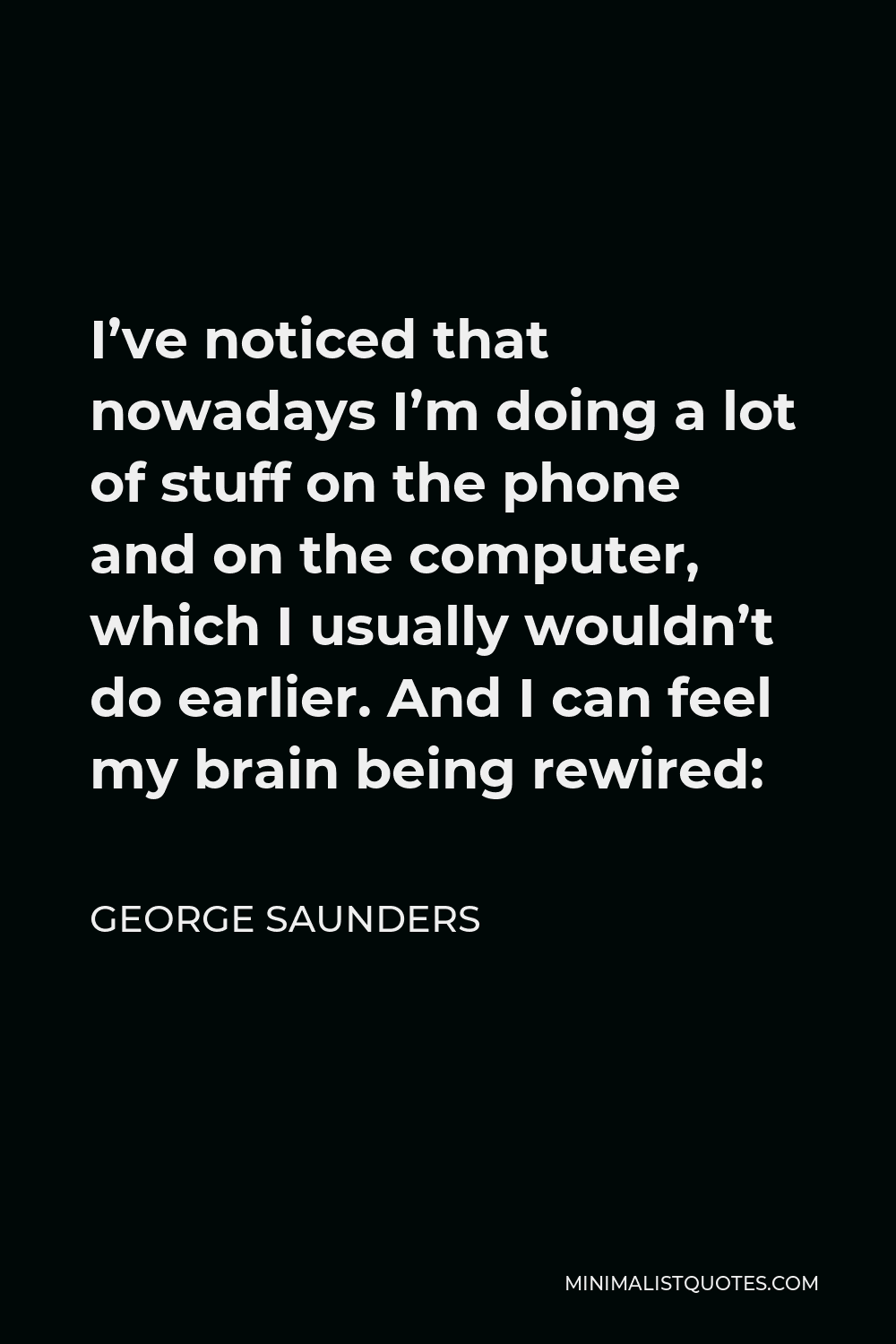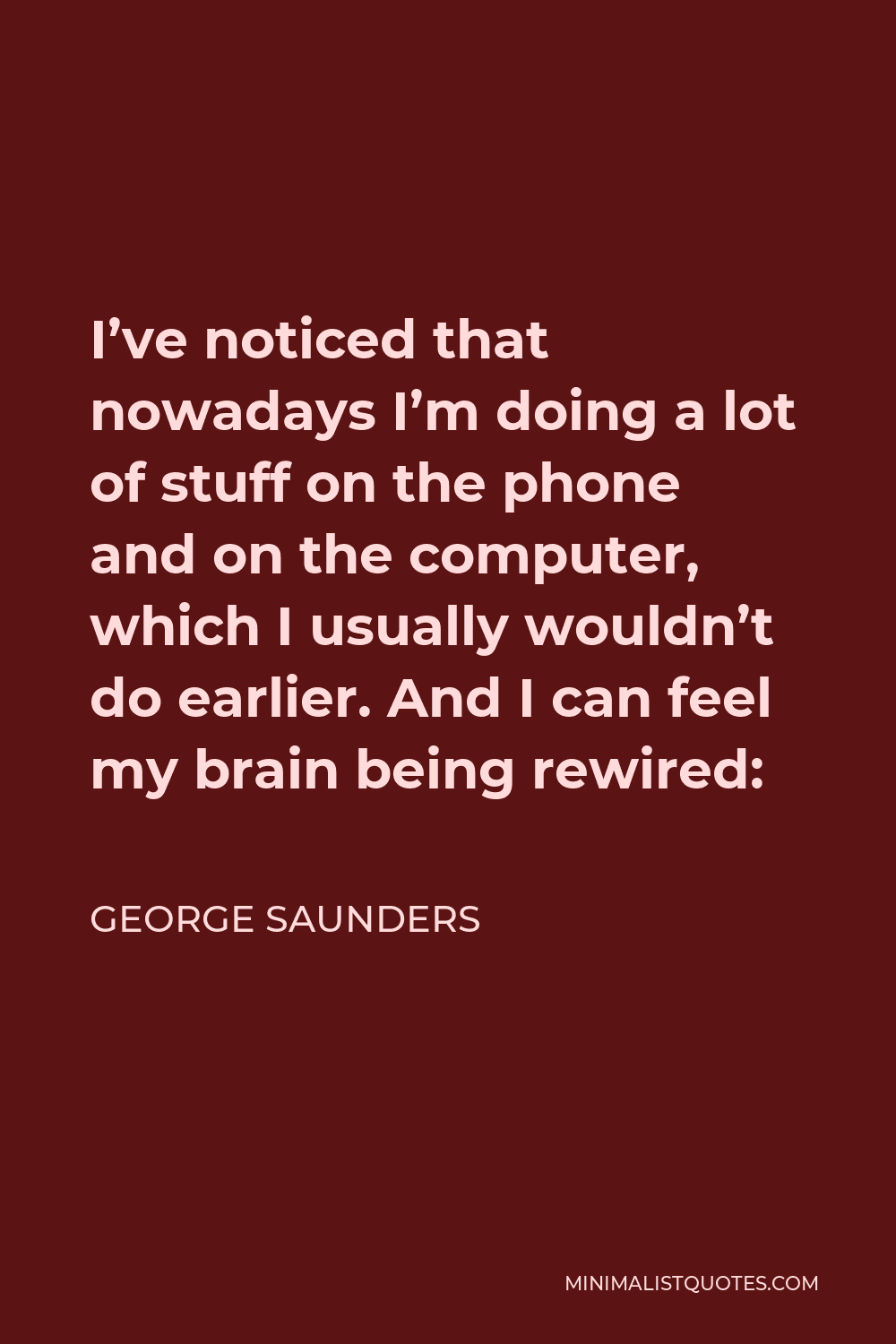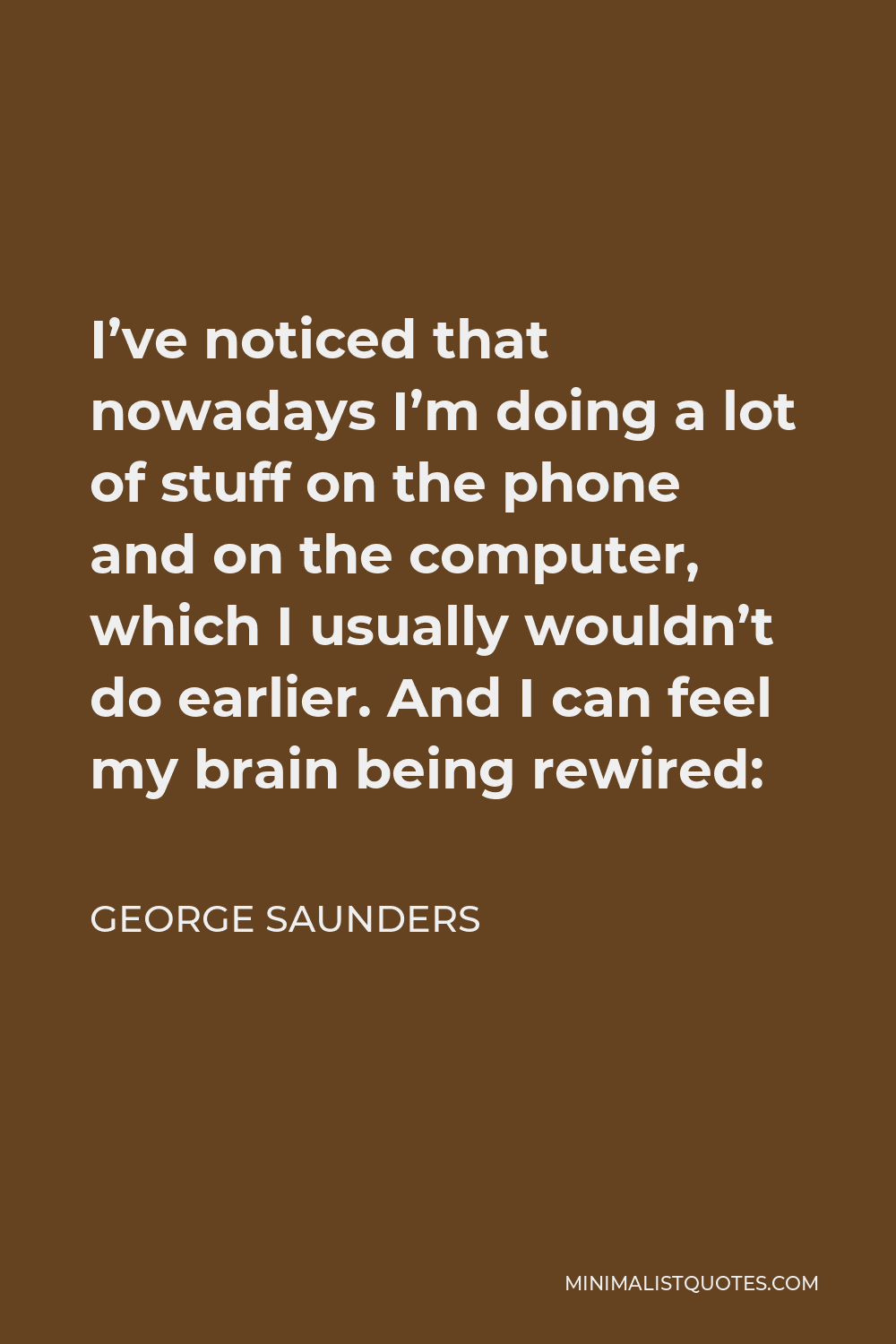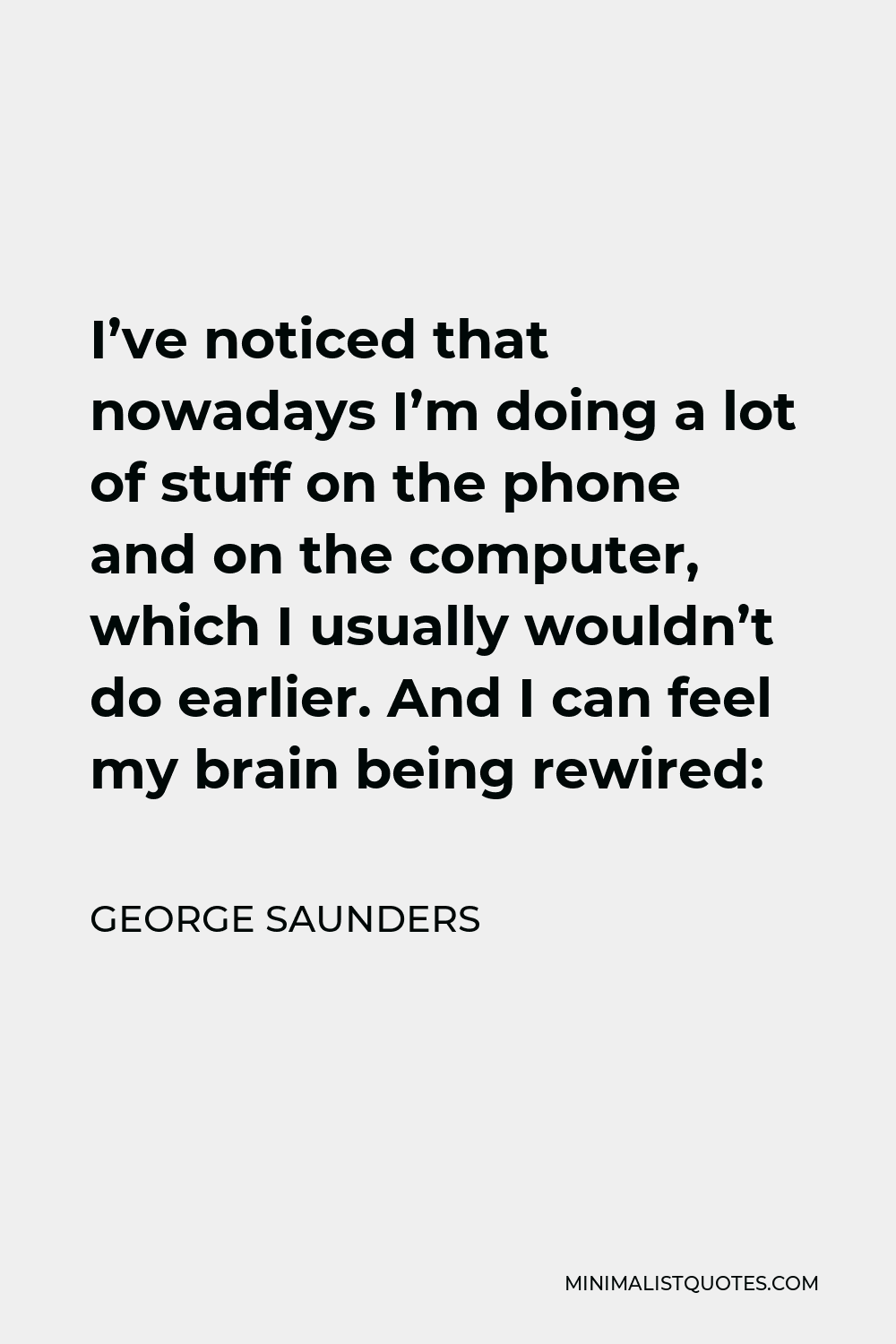Life is short, very short, and what are we doing here if not trying to become more generous and loving?
GEORGE SAUNDERSI’ve noticed that nowadays I’m doing a lot of stuff on the phone and on the computer, which I usually wouldn’t do earlier. And I can feel my brain being rewired:
More George Saunders Quotes
-





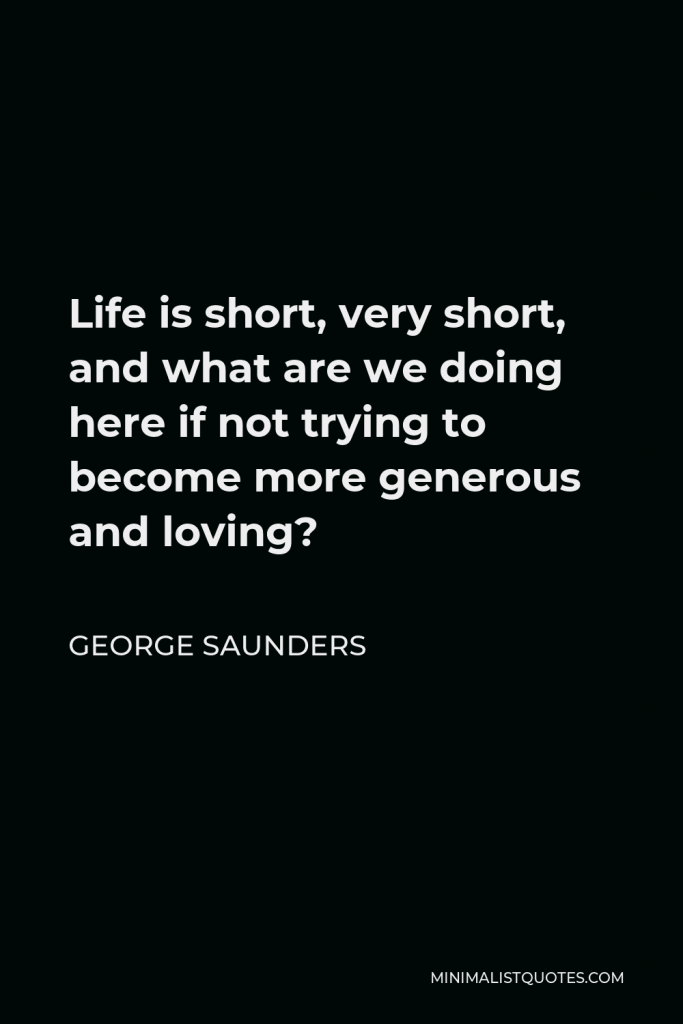

-





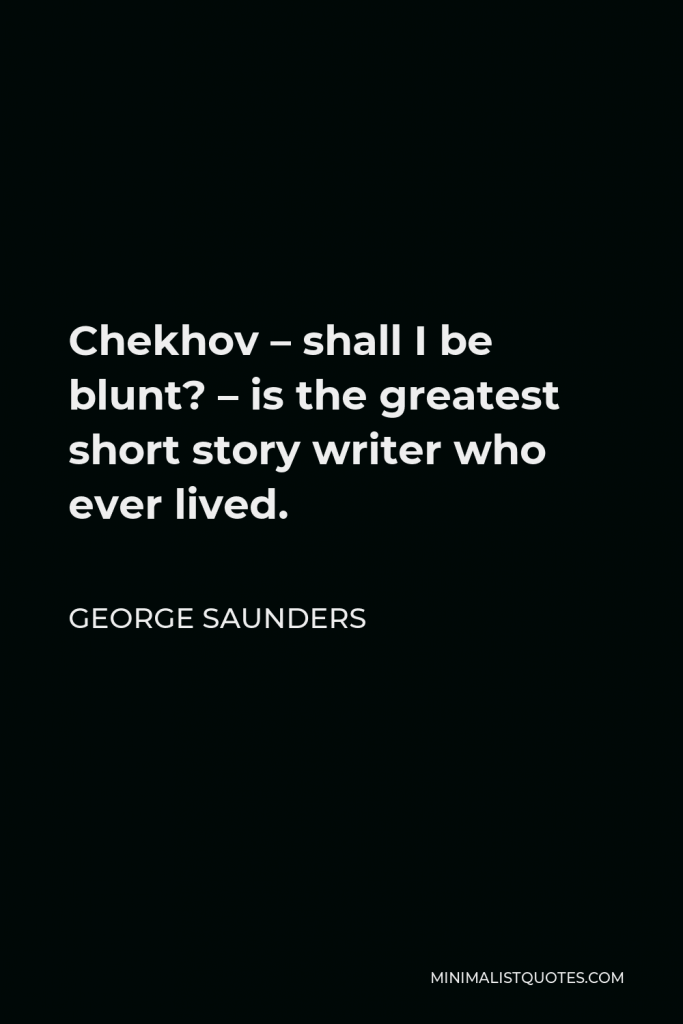

Chekhov – shall I be blunt? – is the greatest short story writer who ever lived.
GEORGE SAUNDERS -





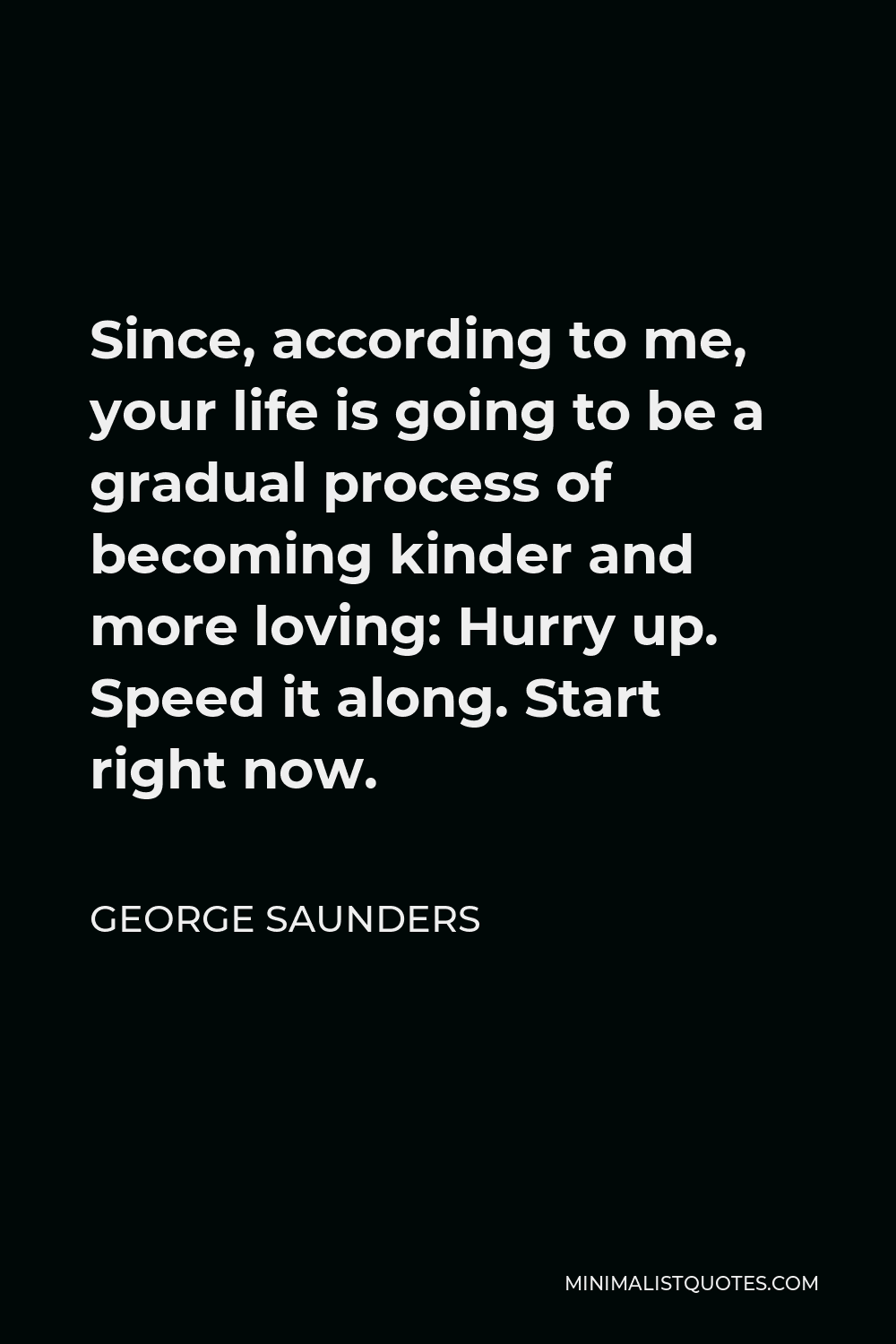
Since, according to me, your life is going to be a gradual process of becoming kinder and more loving: Hurry up. Speed it along. Start right now.
GEORGE SAUNDERS -





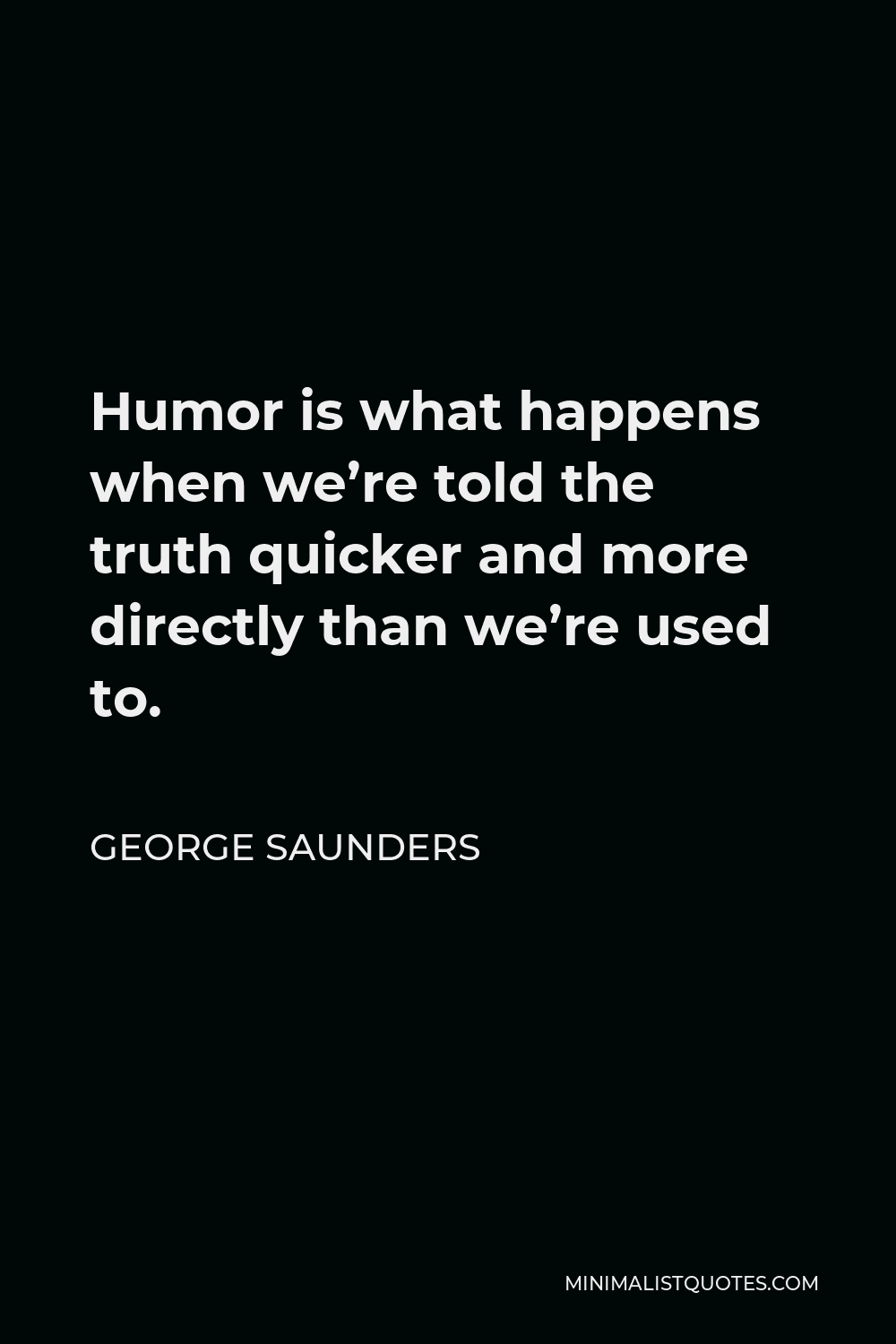
Humor is what happens when we’re told the truth quicker and more directly than we’re used to.
GEORGE SAUNDERS -





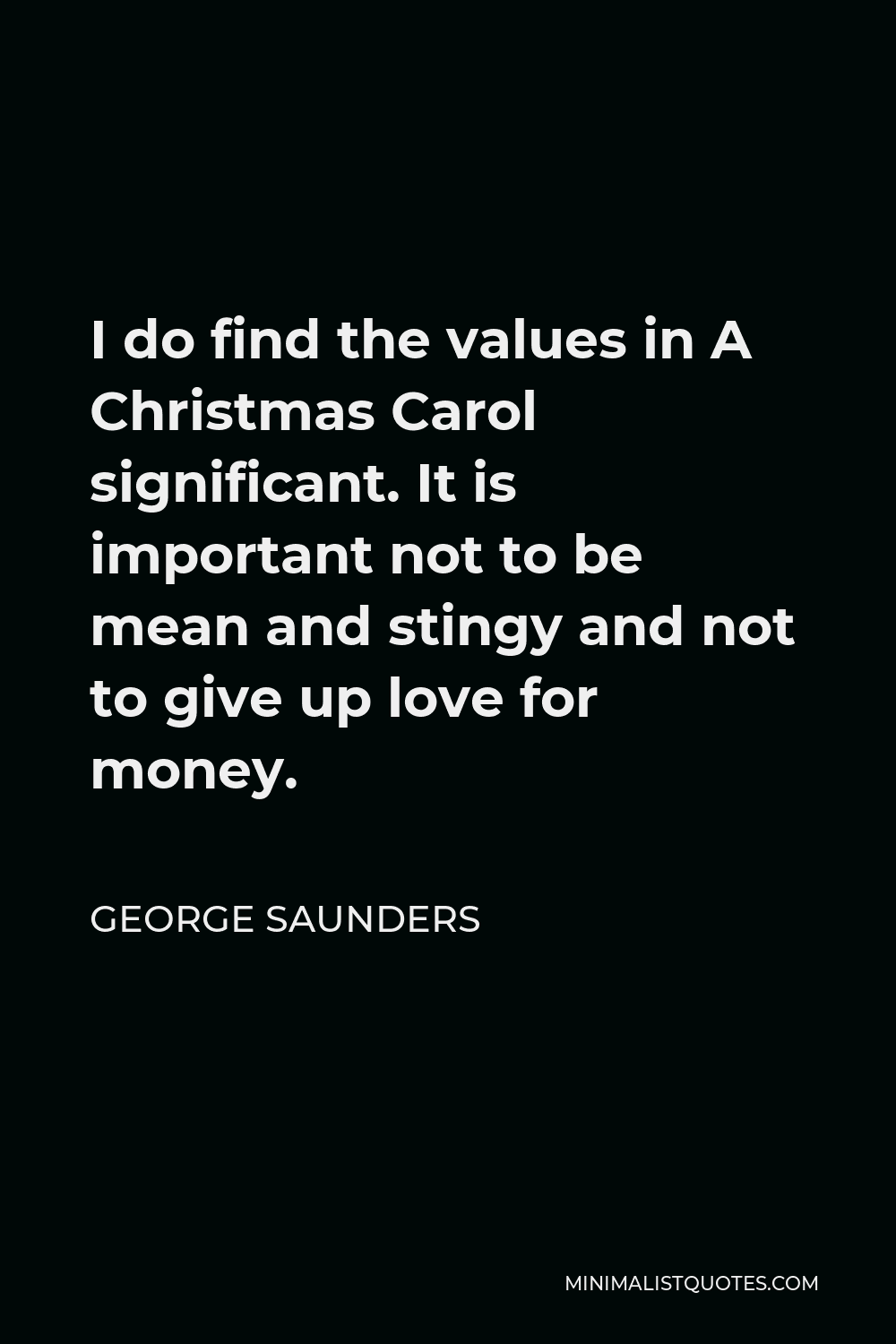
I do find the values in A Christmas Carol significant. It is important not to be mean and stingy and not to give up love for money.
GEORGE SAUNDERS -





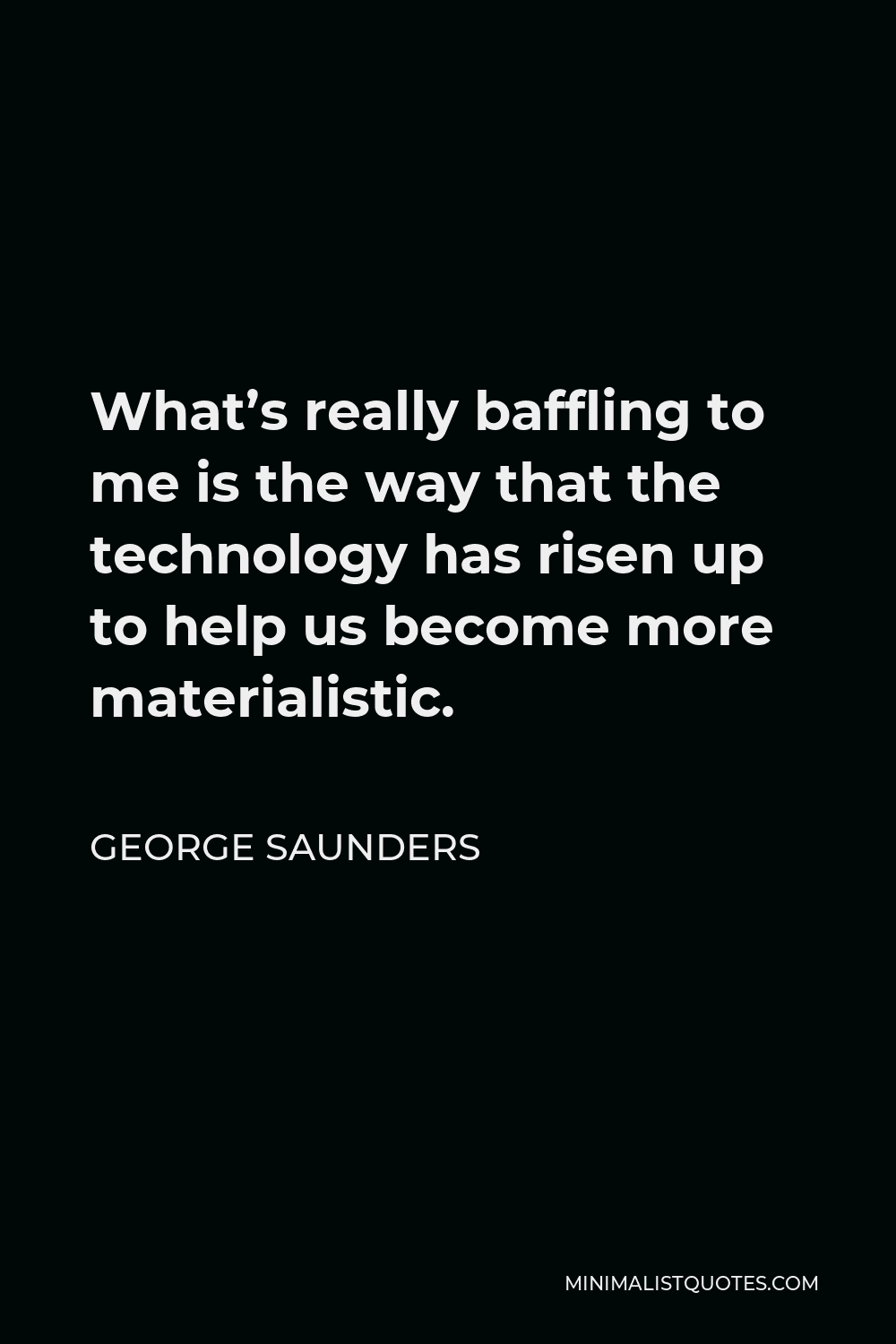
What’s really baffling to me is the way that the technology has risen up to help us become more materialistic.
GEORGE SAUNDERS -






Our first responsibility in all things is to preserve our goodness of heart – then and only then act.
GEORGE SAUNDERS -





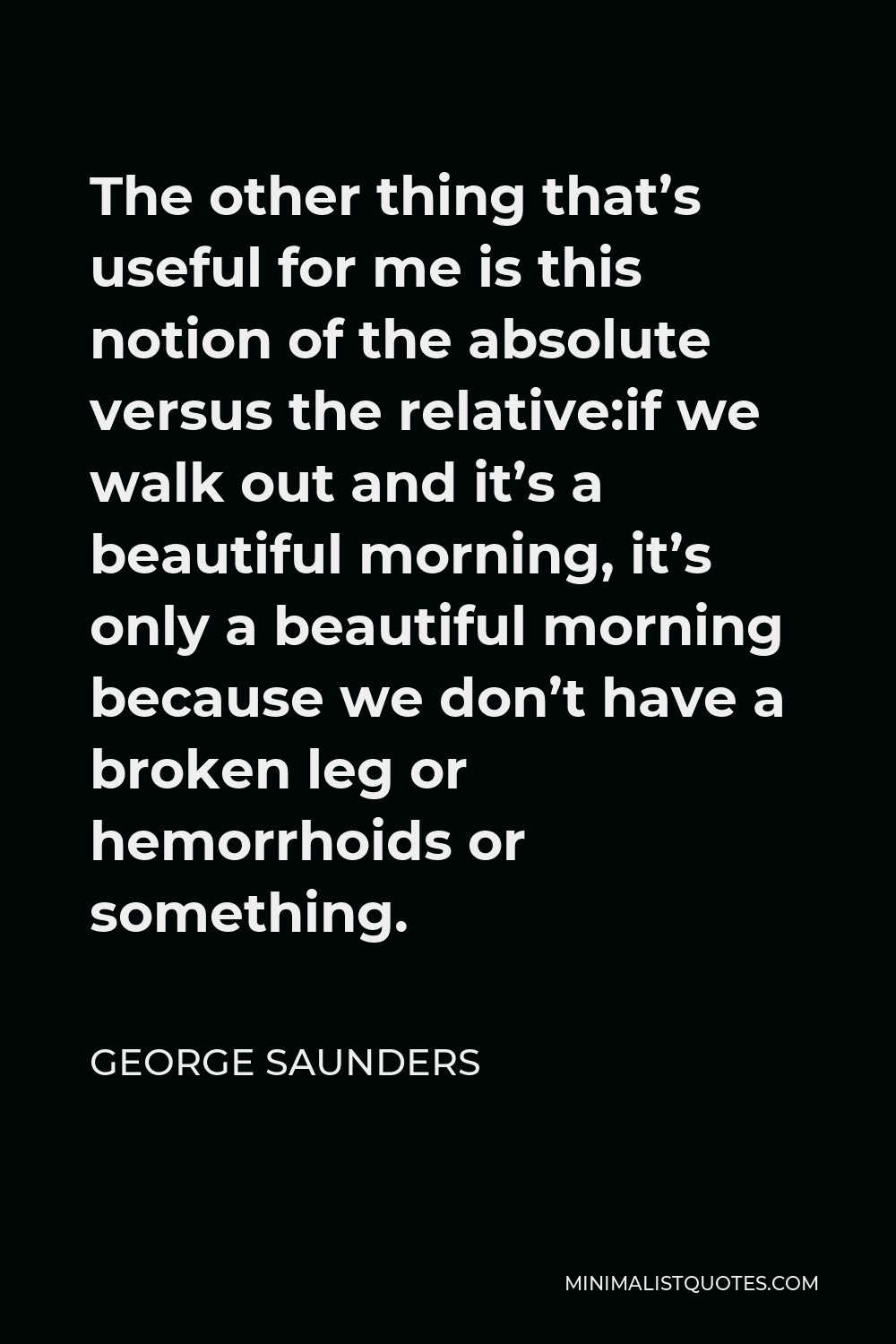
The other thing that’s useful for me is this notion of the absolute versus the relative:if we walk out and it’s a beautiful morning, it’s only a beautiful morning because we don’t have a broken leg or hemorrhoids or something.
GEORGE SAUNDERS -





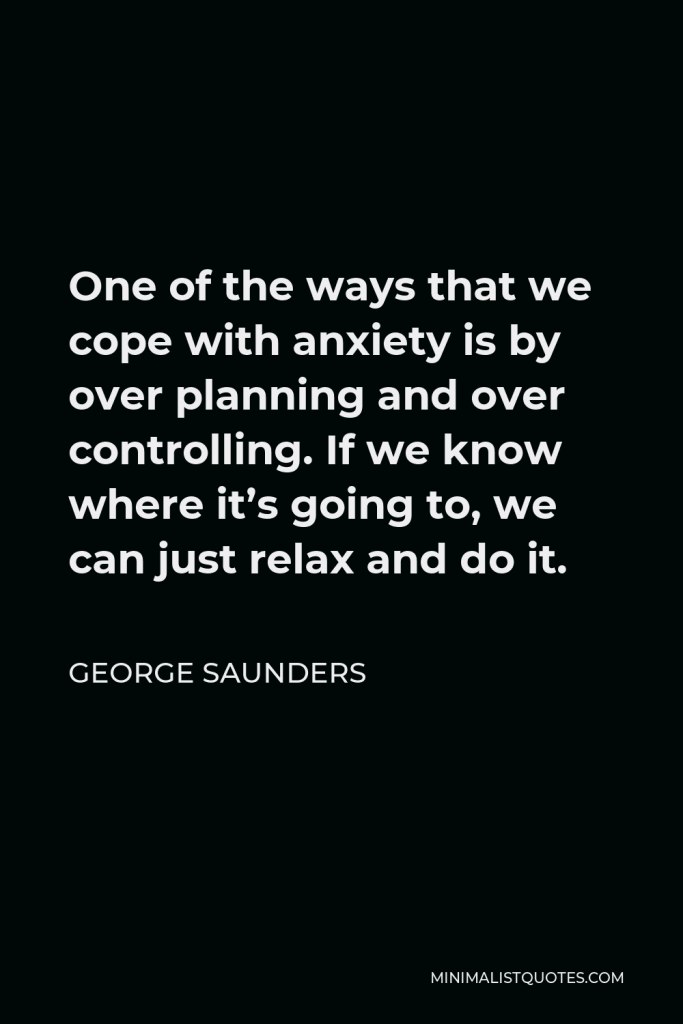

One of the ways that we cope with anxiety is by over planning and over controlling. If we know where it’s going to, we can just relax and do it.
GEORGE SAUNDERS -





![George Saunders Quote - The book says [Lincoln in the Bardo],”I really need this sci-fi device of a ghost inhabiting another person.” You say okay kind of begrudgingly. So the structure seemed informed by need and efficiency.](https://minimalistquotes.com/images/the-book-says-lincoln-in-the-bardoi-really-need-th.jpg)
The book says [Lincoln in the Bardo],”I really need this sci-fi device of a ghost inhabiting another person.” You say okay kind of begrudgingly. So the structure seemed informed by need and efficiency.
GEORGE SAUNDERS -






Even when the faith goes away, there’s that space where you crave something bigger than yourself. For me, that’s kind of where art came in, after that.
GEORGE SAUNDERS -





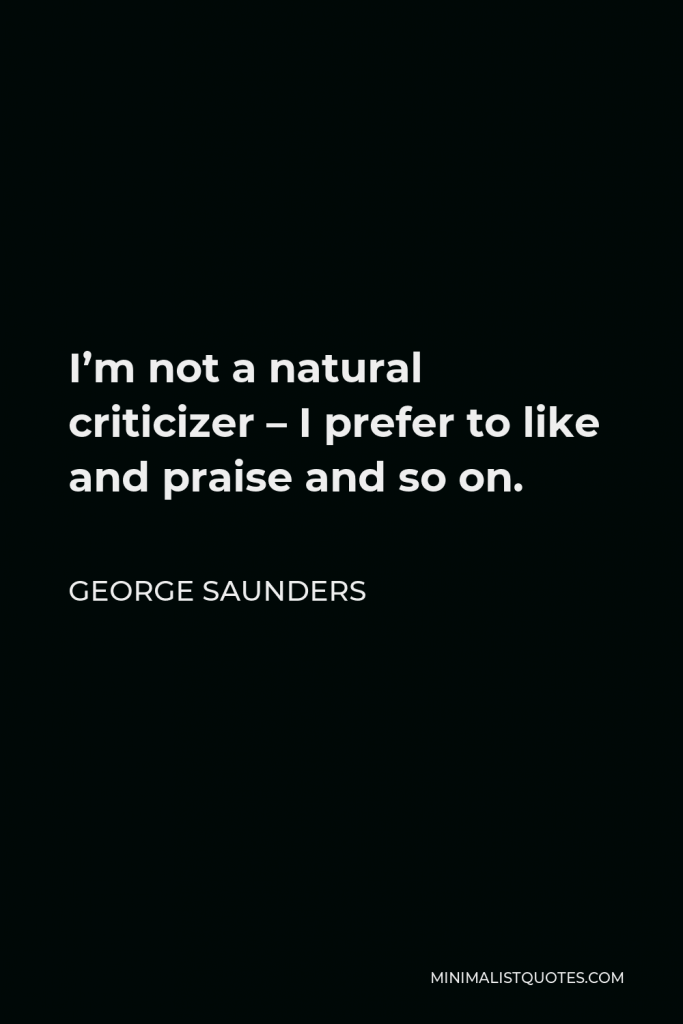

I’m not a natural criticizer – I prefer to like and praise and so on.
GEORGE SAUNDERS -





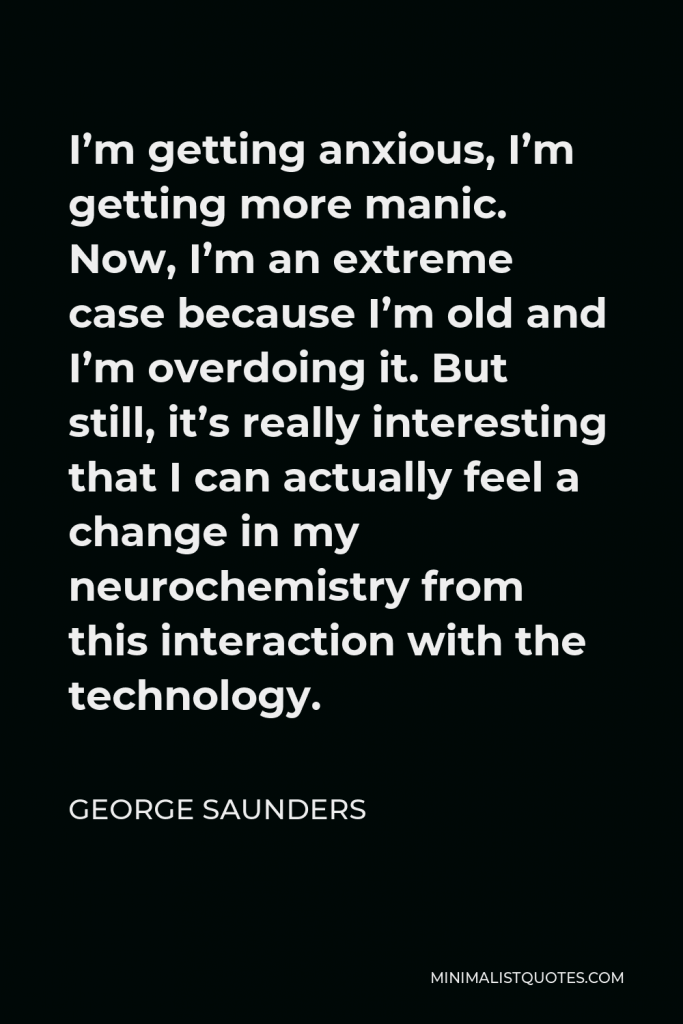

I’m getting anxious, I’m getting more manic. Now, I’m an extreme case because I’m old and I’m overdoing it. But still, it’s really interesting that I can actually feel a change in my neurochemistry from this interaction with the technology.
GEORGE SAUNDERS -





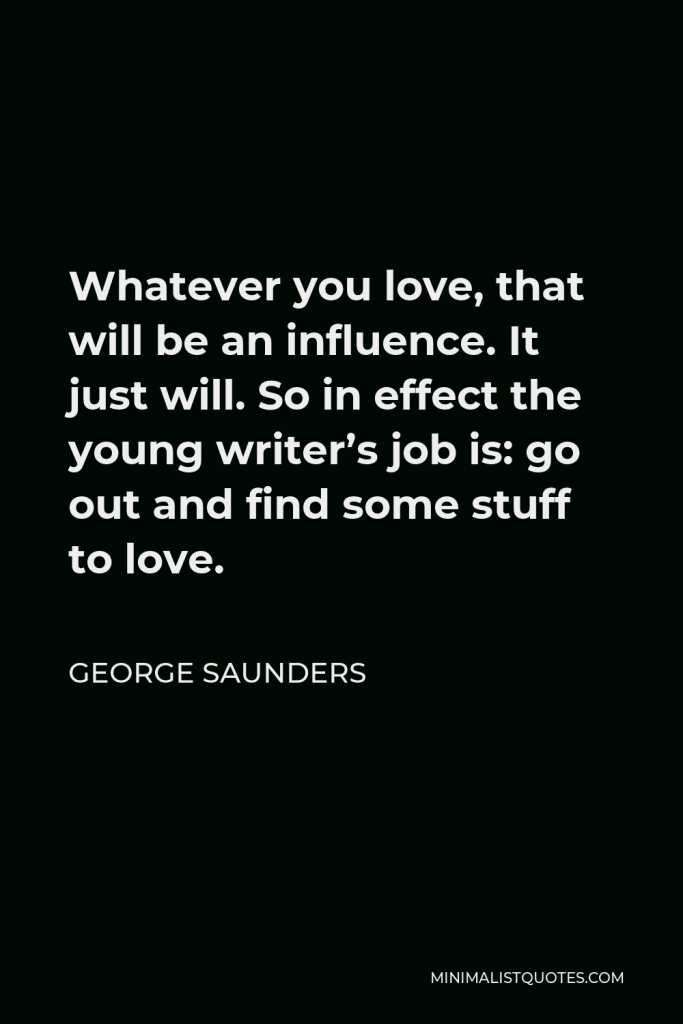

Whatever you love, that will be an influence. It just will. So in effect the young writer’s job is: go out and find some stuff to love.
GEORGE SAUNDERS -





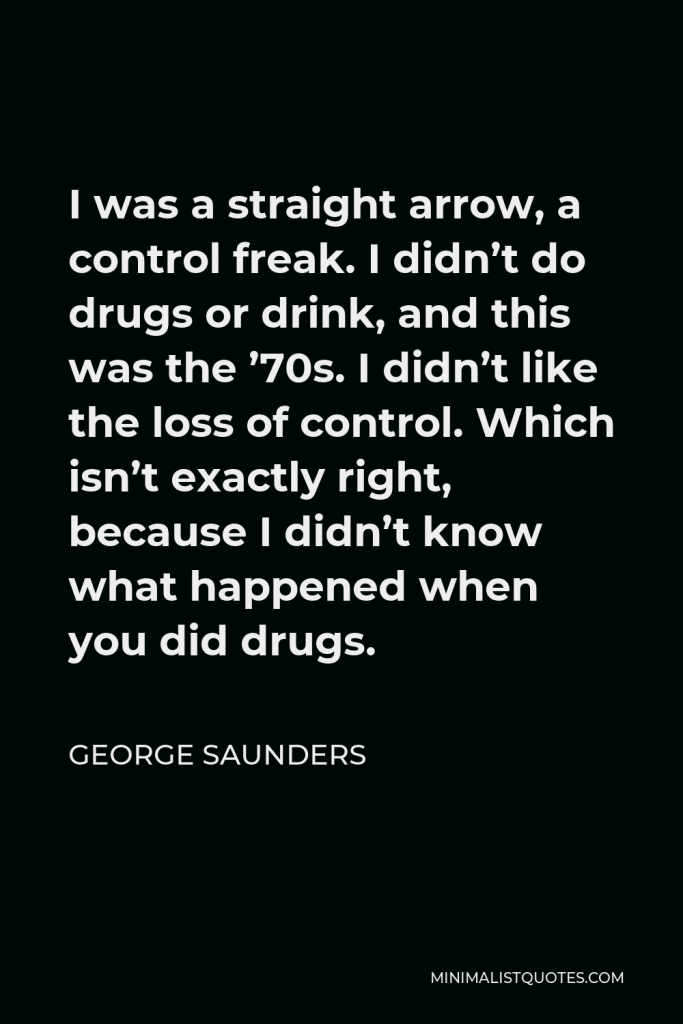

I was a straight arrow, a control freak. I didn’t do drugs or drink, and this was the ’70s. I didn’t like the loss of control. Which isn’t exactly right, because I didn’t know what happened when you did drugs.
GEORGE SAUNDERS -





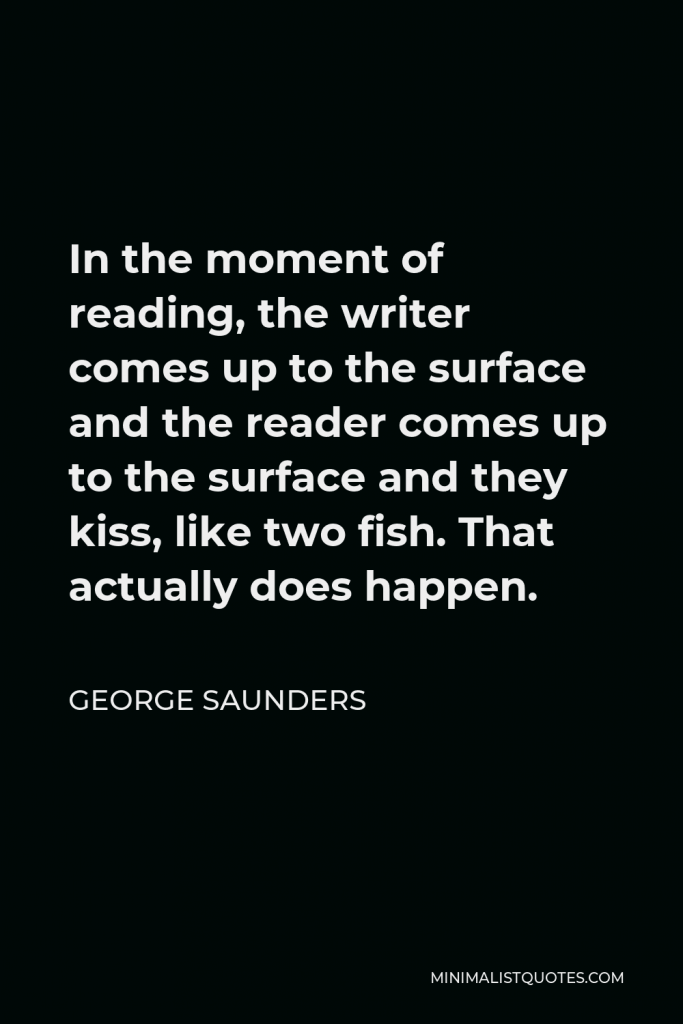

In the moment of reading, the writer comes up to the surface and the reader comes up to the surface and they kiss, like two fish. That actually does happen.
GEORGE SAUNDERS
